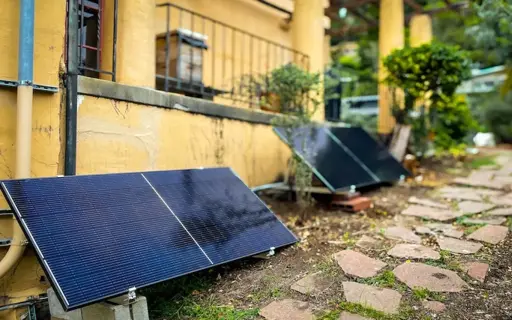Earlier this year, Utah became the first state in the country to enact legislation allowing for the adoption of portable solar—small solar PV systems that are designed to be plugged into a standard wall outlet. These plug-in units are already in widespread use in Germany, and interest is growing in the United States to incorporate them in rules governing electric generation.
The bill in Utah, introduced by Republican state lawmaker Raymond Ward, creates an exemption from interconnection requirements for portable solar devices, meaning there is no need to go through your electric utility before you start generating power. Since the amount of generation is relatively small, there is also no requirement for net metering (whereby the utility must credit customers for excess power they supply to the grid). The intention is to increase access to affordable and clean energy for people who otherwise would not be positioned or inclined to go solar. Utah’s bill passed with unanimous bipartisan support.
“That became the model that we’ve since used for other states,” Kevin Chou, cofounder and executive director of Bright Saver, a nonprofit that has been leading efforts to facilitate plug-in solar adoption in the US, told Sierra. The organization has been in active discussions with over a dozen states, and several have already introduced or announced plans for legislation similar to Utah’s.
State lawmakers in New York and Pennsylvania recently filed plug-in solar bills. Analogous legislation is expected to be introduced in January in both Vermont and New Hampshire. Chou said two other states are slated to announce bills within the next few weeks.


